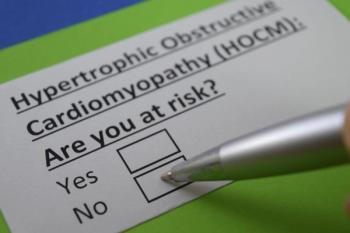Cannabis use—particularly smoking—is associated with a higher risk of adverse cardiovascular outcomes such as heart attack and stroke, according to new data published in the Journal of the American Heart Association.1 Researchers said the findings were of particular importance given the declining perception of risk associated with using the drug.
Cannabis is the most commonly used drug that is illegal at the federal level in the United States. According to data from the CDC, about 18% of Americans—roughly 48 million people—used the drug at least once in 2019.2 Despite the wide use of cannabis, there is currently a lack of data on the risks of using it.
Key Takeaways
- New data published in the Journal of the American Heart Association indicates that cannabis use, particularly smoking, is associated with a higher risk of adverse cardiovascular outcomes.
- Among participants, 4% used cannabis daily, 7% used nondaily, and 88.9% did not use. Smoking was the most common form of consumption at 73.8%. Daily cannabis use was associated with a higher prevalence of coronary heart disease, heart attack, stroke, and a composite indicator for cardiovascular disease.
- The study underscores the importance of recognizing the cardiovascular risks associated with cannabis use, especially as cannabis use is increasing, while conventional tobacco use is decreasing. The findings emphasize the need for public awareness and education regarding the potential health impacts of cannabis use.
“The perceptions of the harmfulness of smoking cannabis are decreasing, and people have not considered cannabis use dangerous to their health,” Abra Jeffers, lead author on the study, said in a release.3 “However, previous research suggested that cannabis could be associated with cardiovascular disease. In addition, smoking cannabis—the predominant method of use—may pose additional risks because particulate matter is inhaled.”
The study, funded by NIH’s National Heart, Lung, and Blood Institute, was conducted by a team of researchers from UC San Francisco. Data was collected from a survey done by the Behavioral Risk Factor Surveillance System between 2016 and 2020. The telephone survey collected data from US adults on risk factors, chronic conditions, and health care access.
The study cohort included 434104 participants between the ages of 18 to 74 who answered the question “During the past 30 days, on how many days did you use marijuana or hashish?” from the survey. Outcomes were assessed based on answers to the question: “Has a doctor, nurse, or other health professional ever told you that you had any of the following…?” Conditions in this question included angina, coronary heart disease, heart attack, and stroke. Investigators then created a composite indicator for cardiovascular disease.
Of the participants, 4% used cannabis daily, 7% used nondaily, and 88.9% did not use. The most common form consumed was smoking at 73.8%. Just over 4% of participants reported daily use of alcohol and 61.1% said they had never used tobacco cigarettes. Investigators found that the prevalence of coronary heart disease was 3.5%, for heart attack 3.6%, for stroke 2.8%, and for the composite 7.4%.
READ MORE: Maternal Cannabis Use During Pregnancy Associated With Adverse Health Outcomes
Further analysis of participants who never used tobacco cigarettes showed that daily cannabis use was associated higher risk of heart attack, stroke, and the composite. The outcomes were similar between men 55 years or younger and women 65 years of younger. Additionally, not using cannabis daily was associated with lower odds of cardiovascular disease.
Study limitations include the cross-sectional design, that cardiovascular conditions and cannabis use were self-reported, a lack of data on baseline lipid profile or blood pressure, that answers could not be linked to death records, and that a large proportion of cannabis users were younger.
“Our sample was large enough that we could investigate the association of cannabis use with cardiovascular outcomes among adults who had never used tobacco cigarettes or e-cigarettes,” Jeffers said. “Cannabis smoke is not all that different from tobacco smoke, except for the psychoactive drug: THC vs. nicotine. Our study shows that smoking cannabis has significant cardiovascular risk risks, just like smoking tobacco. This is particularly important because cannabis use is increasing, and conventional tobacco use is decreasing.”
READ MORE: Cardiology Resource Center
References
1. Jeffers A, Glantz S, Byers AL, et al. Association of cannabis use with cardiovascular outcomes among US adults. J Am Heart Assoc. DOI: 10.1161/JAHA.123.030178
2. Marijuana and Public Health Data and Statistics. Report. CDC. June 8, 2021. Accessed February 28, 2024. https://www.cdc.gov/marijuana/data-statistics.htm
























